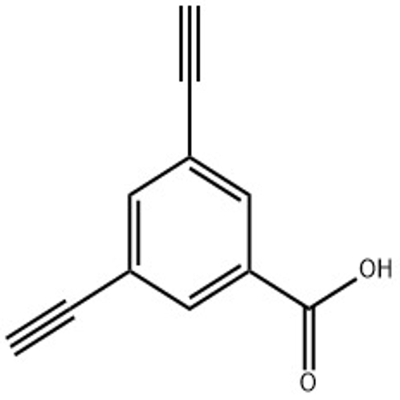-
Categories
-
Pharmaceutical Intermediates
-
Active Pharmaceutical Ingredients
-
Food Additives
- Industrial Coatings
- Agrochemicals
- Dyes and Pigments
- Surfactant
- Flavors and Fragrances
- Chemical Reagents
- Catalyst and Auxiliary
- Natural Products
- Inorganic Chemistry
-
Organic Chemistry
-
Biochemical Engineering
- Analytical Chemistry
-
Cosmetic Ingredient
- Water Treatment Chemical
-
Pharmaceutical Intermediates
Promotion
ECHEMI Mall
Wholesale
Weekly Price
Exhibition
News
-
Trade Service
6-Chloro-N-pentyl-3-pyridazinamine is an organic compound that has a wide range of applications in the chemical industry.
This compound is synthesized by the reaction of 2-chloropropanamine with 3-pyridazinecarboxylic acid in the presence of an acid catalyst.
6-Chloro-N-pentyl-3-pyridazinamine is a solid at room temperature and has a molecular formula of C5H14ClN3.
One of the most important applications of 6-chloro-N-pentyl-3-pyridazinamine is as a catalyst in the production of polyurethane foam.
Polyurethane foam is a versatile material that is used in a variety of applications, including furniture, insulation, and automotive parts.
The catalyst plays a crucial role in the formation of the polymer, and the type and effectiveness of the catalyst can significantly impact the properties of the final product.
6-chloro-N-pentyl-3-pyridazinamine is used as a catalyst due to its ability to facilitate the reaction between the polyisocyanate and the polyol.
Another application of 6-chloro-N-pentyl-3-pyridazinamine is in the production of lubricants and oil additives.
The compound is used as a catalyst in the production of ester oils, which are used as lubricants in a variety of applications, including industry, transportation, and hydraulic systems.
The catalyst helps to facilitate the reaction between the oil and the alcohol, resulting in the formation of the desired ester.
6-Chloro-N-pentyl-3-pyridazinamine is also used as a catalyst in the production of polyurea coatings.
Polyurea coatings are used in a variety of applications, including automotive and industrial coatings, due to their excellent durability, flexibility, and abrasion resistance.
The catalyst plays a crucial role in the formation of the polymer, and 6-chloro-N-pentyl-3-pyridazinamine is used due to its ability to facilitate the reaction between the amine and the isocyanate.
The compound is also used as a catalyst in the production of polycarbonate.
Polycarbonate is a versatile material that is used in a variety of applications, including electronics, automotive parts, and medical devices.
The catalyst helps to facilitate the reaction between the dihydroxy compound and the carbonate, resulting in the formation of the desired polymer.
In addition to its applications as a catalyst, 6-chloro-N-pentyl-3-pyridazinamine is also used as an intermediate in the production of pharmaceuticals and agrochemicals.
The compound is used as a precursor in the synthesis of various drugs and pesticides.
Overall, 6-chloro-N-pentyl-3-pyridazinamine is a versatile compound with a wide range of applications in the chemical industry.
Its ability to function as a catalyst in various reactions makes it a valuable component in the production of a variety of industrial and consumer products.
Its use as an intermediate in the production of pharmaceuticals and agrochemicals further expands its range of applications.
As the chemical industry continues to evolve, it is likely that 6-chloro-N-pentyl-3-pyridazinamine will continue to play an important role in the production of a variety of important industrial and consumer products.







